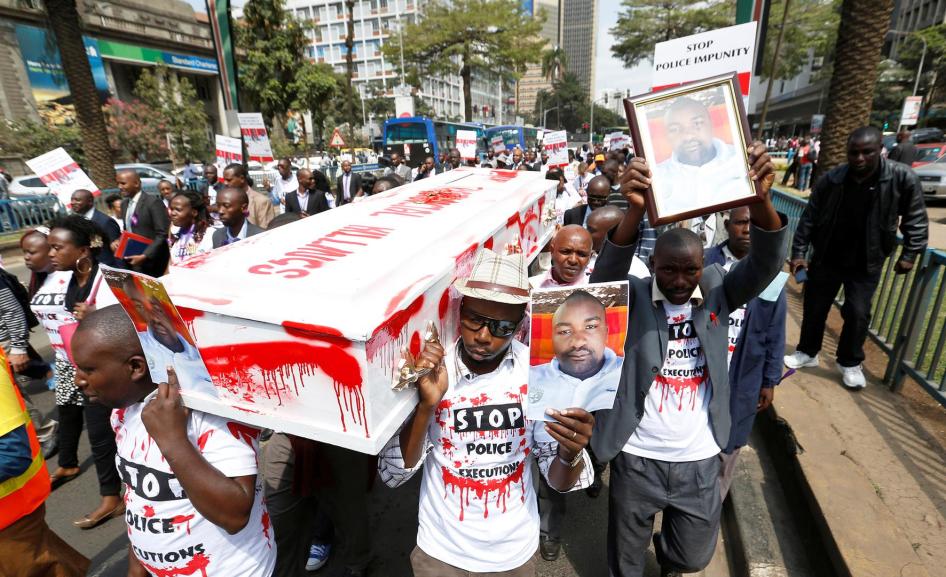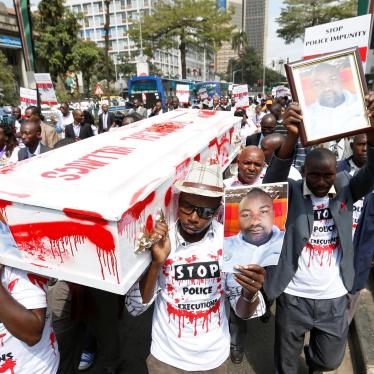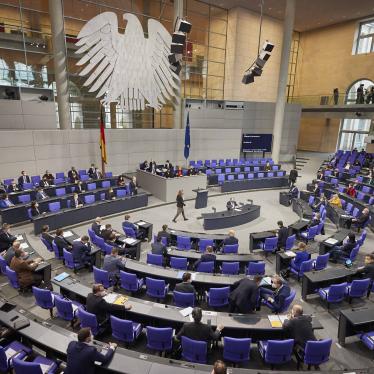It is time for Kenyan authorities to address the scourge of police killings in some of Nairobi’s poorest neighborhoods.
Human Rights Watch investigations have found that in three separate incidents, Nairobi police killed no less than 21 alleged suspects, apparently unlawfully. Most of the killings were not reported or investigated. Police don’t follow their own procedures for reporting each killing. In the few cases where investigations are ongoing, police have failed to cooperate with investigators from Independent Policing Oversight Authority (IPOA), a civilian police accountability institution.
While we managed to investigate 21 recent killings, activists working in these neighborhoods and the media report much higher numbers. But for many reasons, including the non-cooperation by police to obscure justice, and reluctance by victims and witnesses to report the crimes, police killings are rarely reported or investigated.
Last week, Human Rights Watch wrote to Hillary Mutyambai, who recently took over as the inspector general of Police, to share our research findings on police killings and push for accountability.
Lack of accountability for police abuses persists despite Kenya having created what should have been strong accountability institutions following the adoption of the 2010 constitution. In November 2018, the IPOA, one of the institutions created after 2010, said it was investigating 243 cases of police killings that occurred that year alone. This does not include the number of cases that might not have been reported that year. Yet, even with that, only a handful of those under investigations are likely going to make it through to prosecution.
IPOA has fallen way below expectations in terms of investigations and successful prosecutions. It lacks resources, capacity, and crucially, the cooperation from police – necessary to operate. Mutyambai can and should turn things around and ensure the Kenya Police Service follows its own procedures for reporting every killing, but also cooperates with IPOA and supports justice for victims of police abuses.







